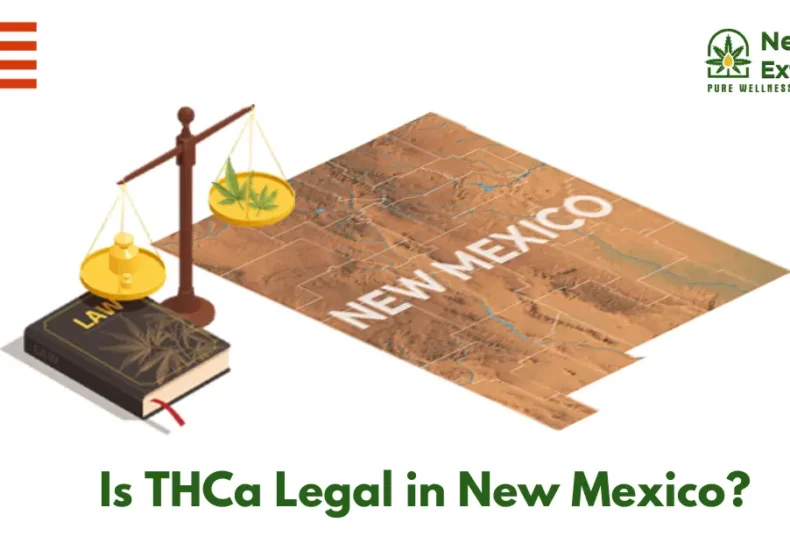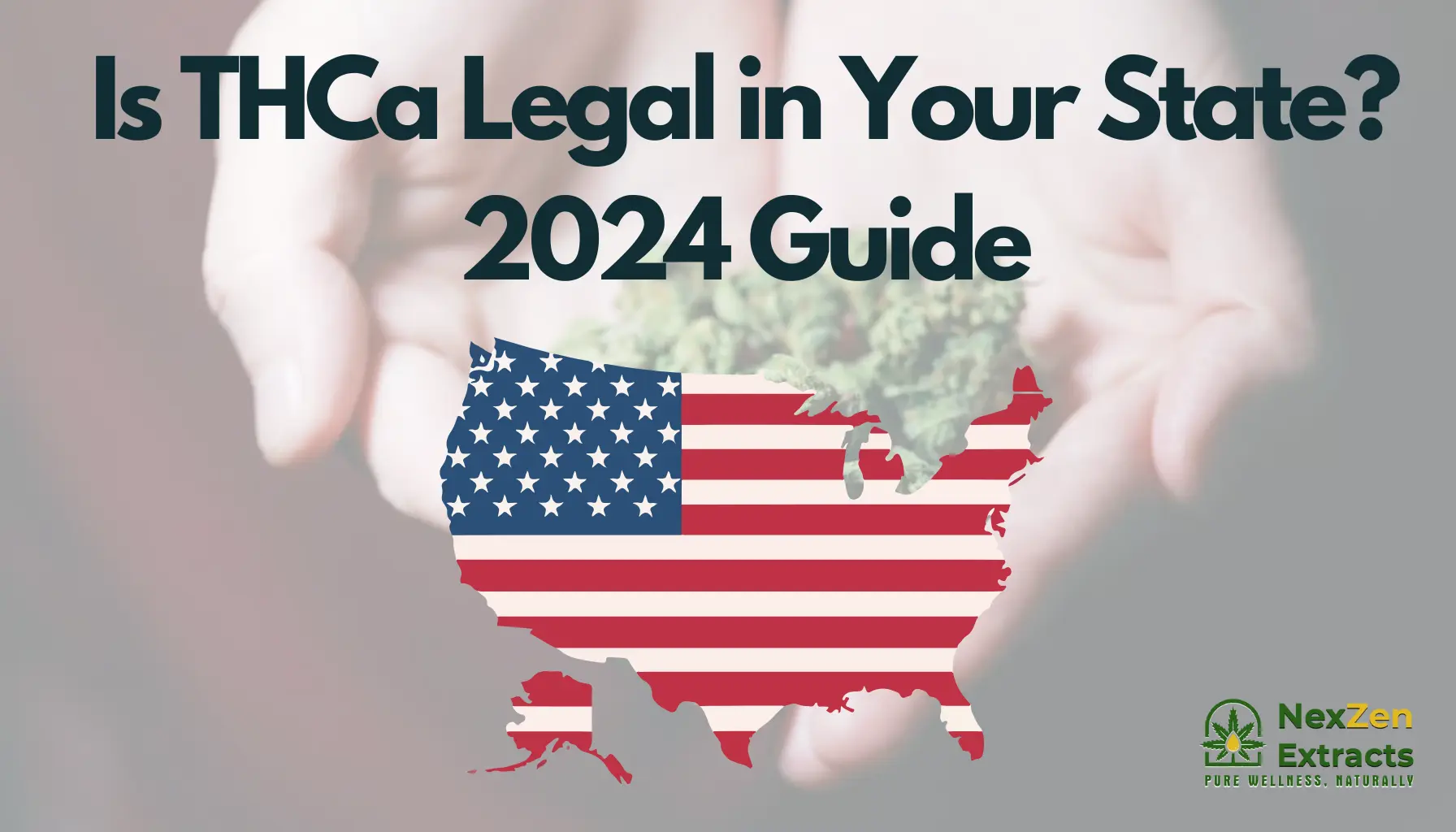
Introduction
The cannabis industry is evolving faster than ever, and with it comes a wave of exciting new cannabinoids. One that’s been gaining traction lately is THCa (tetrahydrocannabinolic acid). Whether you’re a seasoned enthusiast or a curious newbie, you’ve likely heard about THCa flower and its growing popularity. But as with anything cannabis-related, legality remains a hot topic. Is THCa legal where you live?
In this comprehensive guide, we’ll break down the federal legality of THCa, the nuanced laws in different states, and what you should know to stay on the right side of the law. Whether you’re considering buying THCa flower, Delta-8 gummies, Delta-8 live resin carts, or other hemp-derived products, understanding the legal landscape is key to making informed choices.
What is THCa?
Before diving into the legalities, let’s get clear on what THCa is and why it’s such a game-changer.
THCa, or tetrahydrocannabinolic acid, is a non-psychoactive cannabinoid found in raw cannabis plants. Unlike THC, which delivers the “high” commonly associated with marijuana, THCa is inactive until it undergoes decarboxylation—a process triggered by heat. This transformation occurs when you smoke, vape, or cook THCa flower, turning it into Delta-9 THC, the psychoactive compound.

THCa is celebrated for its potential wellness benefits, including:
- Anti-inflammatory properties: May help reduce chronic inflammation.
- Neuroprotective effects: Shows promise in supporting brain health.
- Antiemetic potential: May alleviate nausea and vomiting.
Products containing THCa include high-quality flower, tinctures, and edibles, making it a versatile choice for consumers looking for wellness-focused cannabis products. Additionally, Delta-8 live resin carts are gaining attention for their smooth experience and flavorful vapor, offering another option for cannabis enthusiasts.
THCa at the Federal Level: What Does the Law Say?
The 2018 Farm Bill was a landmark piece of legislation for the cannabis industry. It federally legalized hemp and hemp-derived products, provided they contain no more than 0.3% Delta-9 THC on a dry weight basis.
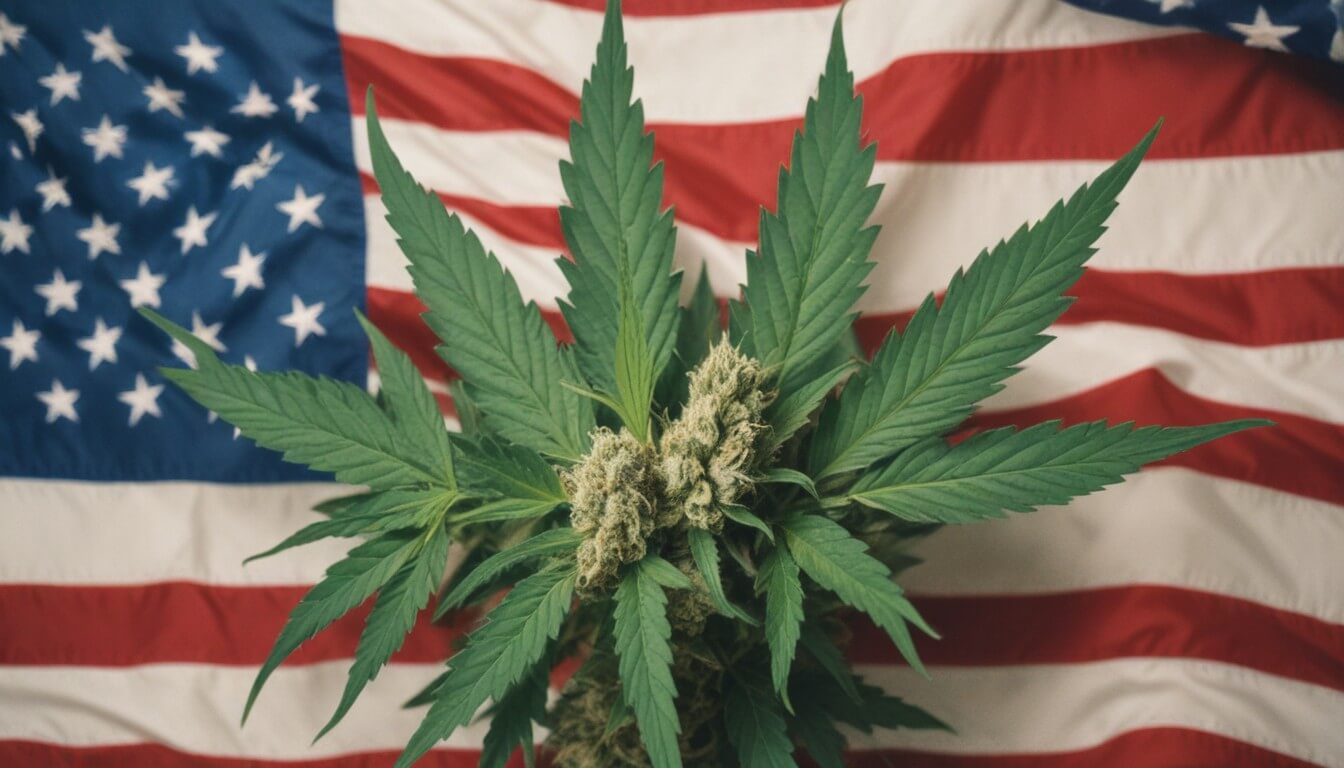
Since THCa is non-psychoactive in its raw form, it technically fits within the Farm Bill’s definition of hemp. However, the situation gets complicated because of decarboxylation. Once heated, THCa converts into Delta-9 THC, potentially surpassing the legal THC threshold.
This puts THCa in a legal gray area. While hemp-derived THCa products are federally permitted, their legality often depends on state-level interpretations of the Farm Bill and how strictly states regulate potential THC conversion.
State-by-State Breakdown of THCa Legality
States Where THCa is Legal
In states with robust recreational or medical cannabis programs, THCa is generally considered legal. These states allow the cultivation, sale, and use of cannabis-derived products, including THCa flower. Examples include:
- California: THCa flower is legal for both recreational and medical use. Cannabis dispensaries stock a variety of THCa products for adults over 21.
- Colorado: Known for its progressive cannabis laws, Colorado permits THCa flower and other hemp-derived products.
- Oregon and Washington: These states fully embrace cannabis in all forms, making THCa flower widely available.
States with Conditional Legality
Some states permit THCa under specific conditions, such as compliance with hemp regulations or enrollment in a medical cannabis program. These include:
- Florida: THCa is legal under the state’s hemp laws, but access to higher-potency THCa products often requires a medical marijuana card.
- Texas: The state follows federal guidelines for hemp-derived products, meaning THCa is legal as long as it contains less than 0.3% Delta-9 THC on a dry weight basis.
- Ohio: Hemp-derived THCa flower is legal, but state regulators monitor THC conversion closely to ensure compliance.
States with Restrictive Cannabis Laws
In states with strict cannabis laws, THCa is often treated with suspicion due to its potential conversion into THC. These states include:
- Idaho: Cannabis laws in Idaho are among the strictest in the U.S., making THCa flower illegal.
- Indiana: While the state permits hemp-derived CBD, THCa flower exists in a legal gray area and is generally not available.
- Kentucky: Cannabis products, including THCa, are often classified as illegal.
What Does Hemp Law Say About THCa?
Hemp laws play a crucial role in determining the legality of THCa flower. Under the Farm Bill, hemp-derived cannabinoids like Delta-8, Delta-9, and THCa are federally legal as long as they comply with the THC threshold.
However, states have the authority to impose stricter rules. For instance:
- Hemp-derived Delta-8 THC gummies and Delta-8 live resin carts are legal in most states but face bans in others.
- THCa’s unique ability to convert into psychoactive THC often subjects it to closer scrutiny than CBD or Delta-8.
Why Lab Testing is Crucial for THCa Products
When buying THCa flower or any hemp-derived product, third-party lab testing is essential. Reputable brands like NexZen Extracts provide detailed lab reports confirming:
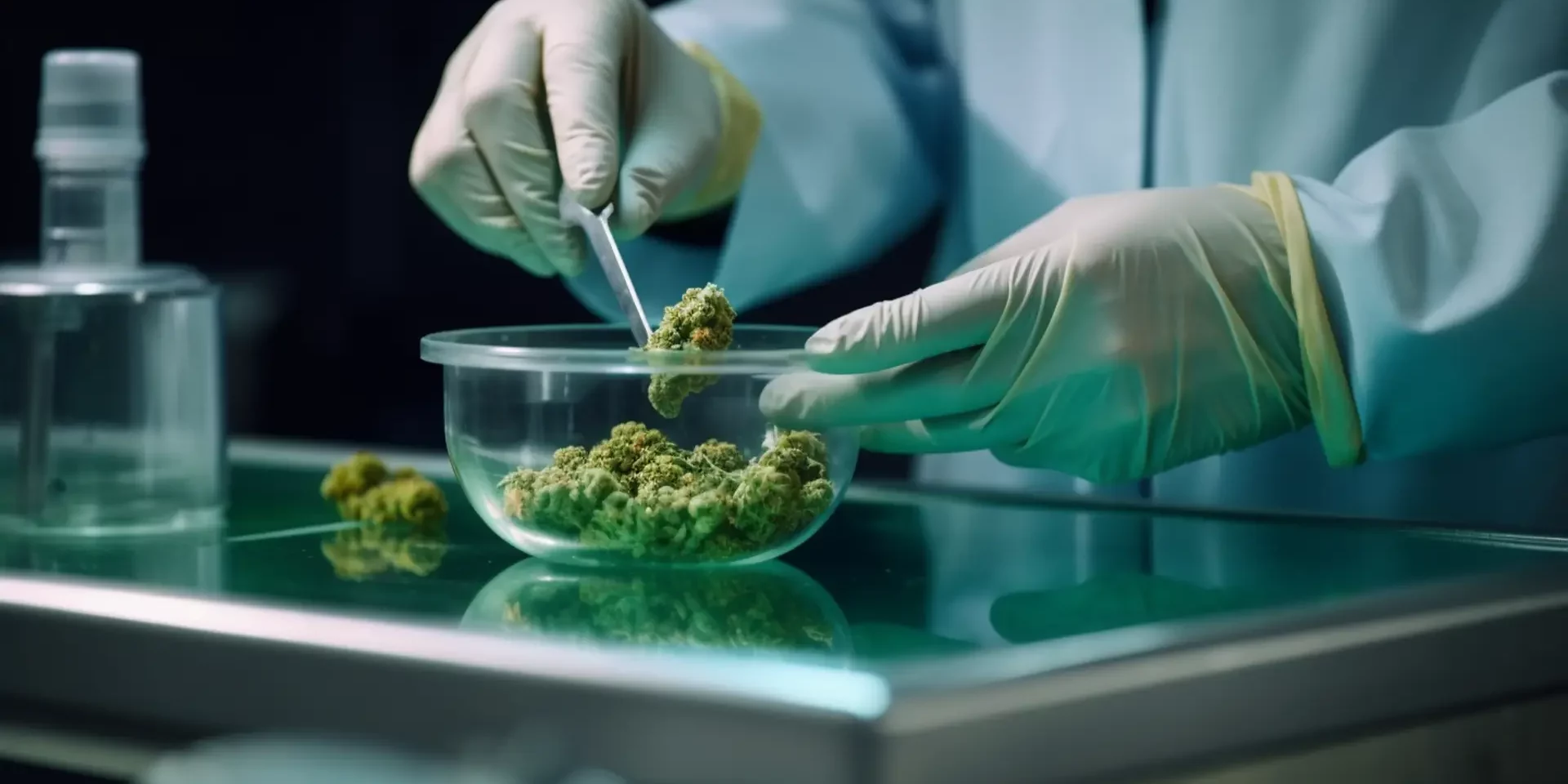
- THCa Content: Ensures the product meets the advertised potency.
- Delta-9 THC Levels: Confirms compliance with the 0.3% federal threshold.
- Pesticides and Heavy Metals: Guarantees product safety and quality.
Always prioritize brands that value transparency and quality assurance.
Understanding the Risks of Using THCa Flower
The main legal risk with THCa flower lies in its conversion to Delta-9 THC when heated. For example:
- Smoking THCa flower instantly converts it into Delta-9 THC, potentially making it illegal in states with strict THC regulations.
- Vaping or cooking with THCa products can result in similar risks, depending on state laws.

To minimize legal issues:
- Use THCa products responsibly in states where they’re fully legal.
- Avoid public consumption, even in cannabis-friendly states.
How Does THCa Compare to Other Cannabinoids?
Cannabis consumers often compare THCa to other cannabinoids like Delta-8, Delta-9, and CBD to determine which best suits their needs.
THCa vs. Delta-8 THC
- Psychoactivity: THCa is non-psychoactive until heated, while Delta-8 THC is mildly psychoactive.
- Legality: Both are federally legal under the Farm Bill, but state laws vary.
- Popular Products: Delta-8 live resin carts and Delta-8 tinctures offer smooth, flavorful experiences for consumers.
Final Thoughts: Is THCa Legal in Your State?
The legality of THCa flower depends on where you live and how your state interprets hemp laws. While federal guidelines provide a baseline, state laws ultimately dictate whether you can legally buy, possess, or use THCa products.
To enjoy THCa responsibly:
- Know the laws in your state.
- Buy from trusted brands like NexZen Extracts.
- Stay informed about changes in cannabis regulations.
At NexZen Extracts, we’re dedicated to providing high-quality, compliant cannabis products that fit seamlessly into your lifestyle. Whether you’re exploring THCa flower, Delta-8 gummies, or Delta-8 live resin carts, we’ve got you covered with transparency and excellence.
Discover the best in hemp-derived products today and elevate your wellness journey with confidence!
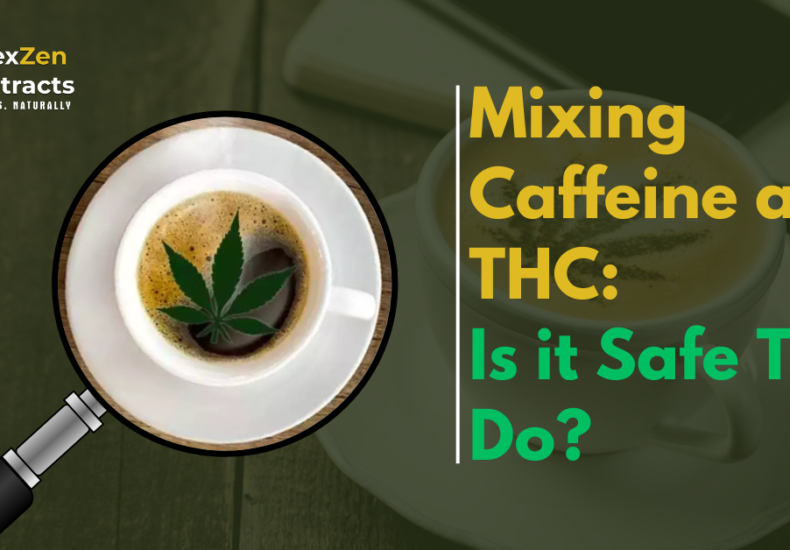
![Is THCa Legal in Indiana? [The Loophole You Should Know!]](https://nexzenextracts.com/wp-content/uploads/2025/01/Top-6-Tips-for-Choosing-the-Right-NexZen-Extracts-Gummies-31-790x550.webp)
